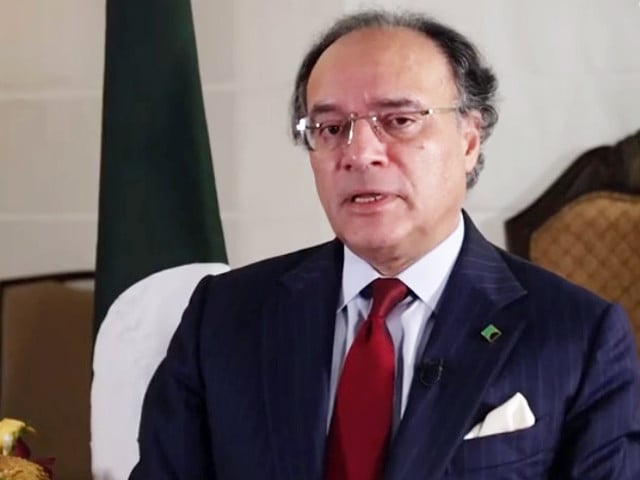Federal Finance Minister Muhammad Aurangzeb has confirmed the government’s obligation to support the private sector and state that trade is not the government’s responsibility.
When talking at the Conference IMPACT conference organized by Securities and Exchange Commission of Pakistan (SECP), he emphasized the need for structural reforms and innovation in the insurance sector.
Aurangzeb highlighted the government’s progress in achieving macroeconomic stability over the past 12 months with reference to a “positive” meeting with the International Monetary Fund (IMF) boss who welcomed Pakistan’s structural reforms.
“The details of financial stability are known to everyone, but now we have to focus on reforms,” he said.
The Minister of Finance emphasized that affordable and effective insurance solutions are important for creating a “insured Pakistan” and added that the country needs modern approaches to life, health and general insurance.
“Climate change discussions at this conference are a big step forward because they play a crucial role in the design of the insurance sector,” he noted.
He also suggested the privatization of insurance companies in the public sector that continue to operate with a loss. “If state -owned insurance companies are a deficit, they must be transferred to the private sector,” Aurangzeb said.
The minister reiterated that the government’s role is to provide a political framework and facilitates companies rather than participating in trade itself.
“Our focus is to create a conducive environment for the private sector to thrive,” he added.
Prime Minister Muhammad Shehbaz Sharif met with Kristalina Georgieva, CEO of International Monetary Fund (IMF) on Tuesday to discuss Pakistan’s ongoing IMF program and macroeconomic stability achieved through the government’s extensive reform agenda.
The meeting took place on the sidelines of the World Governments Summit (WGS) 2025 in Dubai.
According to a statement from the Prime Minister’s office, the discussion focused on Pakistan’s obligation to implement structural reforms and maintain fiscal discipline that has helped restore financial stability.
These reforms are seen as crucial to driving the long -term sustainable growth.
Prime Minister Sharif highlighted the progress made during the IMF’s Extended Fund Facility (EFF), which has played a key role in the stabilization of Pakistan’s economy and setting it on long -term recovery.
He confirmed the government’s obligation to maintain the Momentum of Reform, especially in areas such as tax reform, energy sector efficiency and the development of the private sector.
Georgieva praised Pakistan for his effective implementation of the IMF-supported program and recognized the improved economic performance with rising growth and falling inflation.
She recognized Pakistan’s improvement and economic growth and emphasized that the country is on a positive course.
IMF management director also praised Prime Minister Shehbaz Sharif’s leadership and personal commitment to operating the reform agenda, which has been crucial to achieving financial stability.
She repeated the IMF’s continued support for Pakistan’s reform efforts and emphasized the importance of fiscal discipline, structural reforms and good governance to ensure long -term economic stability and growth.



